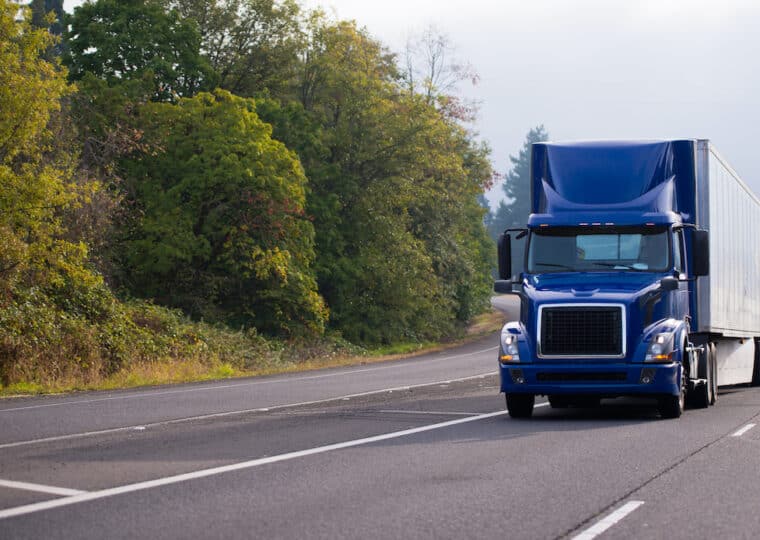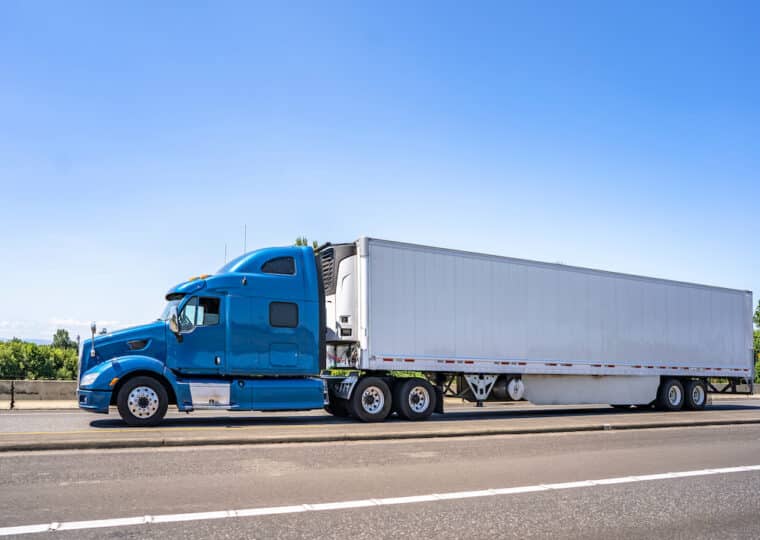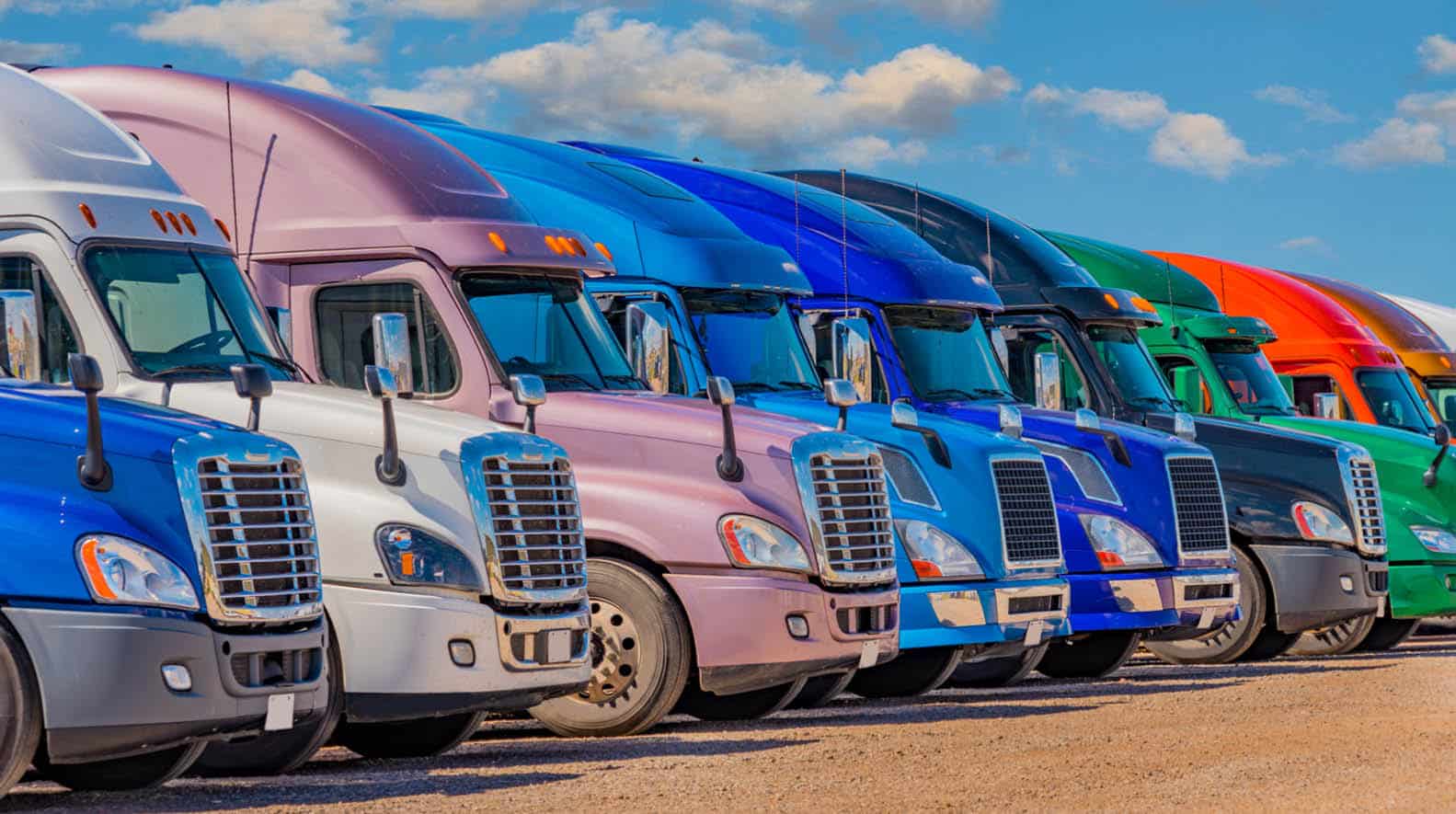Semi-truck trailers play a pivotal role in the logistics and transportation industry, by facilitating safe and efficient conveyance of goods across significant distances. We’re going to take a comprehensive look at different styles and types of semi-trailers. We’ll dive into each different type to provide you with insights into their applications and uses. By the end, you’ll have a solid understanding of the wide and varied world of semi-truck trailers.
The Importance of Choosing the Right Trailer
When you’re considering getting a semi-trailer, choosing the right one is a critical step, and can determine the success or failure of your venture. This means choosing the right semi-truck trailer for safe and efficient transportation of your freight. The type of trailer you choose will depend primarily on the cargo you need to transport. Factors such as the weight, size, and nature of the goods, as well as the travel distance and the unique requirements of loading and unloading, will all factor into this decision.

Different Styles of Semi-Truck Trailers
- Dry Vans
Dry vans are the most common type of semi-truck trailer you’ll see on the highway. These fully enclosed trailers are designed to protect their cargo from both the elements and theft, making them ideal for transporting non-perishable goods. They typically measure 26 to 53 feet in length, with a maximum payload of approximately 45,000 pounds. Dry vans are versatile and are used for a wide range of goods including furniture, electronics, clothing, and non-perishable food items.
- Flatbed Trailers
As the name suggests, flatbed trailers are characterized by a flat, open deck with no roof or sides. This design makes them incredibly versatile for carrying large, heavy, or irregularly shaped loads that wouldn’t fit in an enclosed trailer. The open design allows for loading and unloading from the top, sides, or rear, offering flexibility in handling different kinds of cargo. Typical loads for flatbed trailers include construction equipment, large machinery, steel products, and lumber.
- Refrigerated Trailers
Refrigerated trailers, also known as “reefer trailers,” are essentially dry vans equipped with cooling systems. These trailers maintain a controlled temperature, making them perfect for transporting perishable goods such as fruits, vegetables, dairy products, and meats. Their temperature can be adjusted according to the nature of the cargo, ensuring its freshness and safety throughout the journey. Although refrigerated trailers are typically more expensive to operate due to the additional fuel the cooling system consumes, they open up the possibility to transport temperature-sensitive goods across long distances.
- Lowboy Trailers
Lowboy trailers are specifically designed for hauling heavy equipment and oversized loads. They get their name from their exceptionally low ground clearance which lowers the trailer’s center of gravity, enhancing stability and allowing for the transport of taller items than most other trailers. Lowboys are often used to haul large machinery such as bulldozers, industrial equipment, and even military tanks. They typically have a maximum capacity of 40,000 to 80,000 pounds depending on the number of axles.
- Step Deck Trailers
Step deck trailers, also known as “drop deck trailers,” have a similar design to flatbed trailers but with one notable difference: they have a ‘step’ in their structure that creates two deck levels. This feature makes them ideal for transporting freight that is too tall to be legally transported on a standard flatbed trailer but doesn’t require the additional clearance provided by a lowboy trailer. Common loads for step deck trailers include construction equipment, large vehicles, and heavy machinery.
- Extendable Flatbed Trailers
Extendable flatbed trailers, or “stretch trailers,” are a variation of the standard flatbed trailer. They are designed to handle loads that are too long to be carried on a regular flatbed. These trailers can be ‘extended’ to accommodate the extra length of the cargo, providing a highly flexible solution for transporting long items such as beams, pipes, and wind turbine blades. It’s important to note that carrying extra-long loads may require additional permits, as they often exceed standard transportation regulations.

How to Choose the Right Trailer for Your Operation
Now that you’ve learned about all the different options for your semi-truck trailer, you’ll need to consider a few things before you choose the style you need. Selecting the right semi-truck trailer involves considering several key factors. First of all, considering what type of cargo you’ll be hauling is critical. Analyze the dimensions, weight, and characteristics of the loads, and whether or not they’ll be perishable, oversized, or otherwise uniquely shaped.
Next, consider the loading and unloading facilities at both your origin and destination points. Some trailers will offer far more flexibility in this respect. Finally, always keep the local and federal transportation laws in mind, since they have the ability to affect the type of trailer that you can legally use.
Selecting the right trailer isn’t just about ensuring safe transit for your cargo—it can also save you time, money, and potential legal complications. The wrong trailer type can lead to inefficiencies in space utilization, increased fuel consumption, and potential damage to the goods. It can also result in legal implications if the trailer and load don’t comply with federal and state transportation regulations.
Partner with Blaine Brothers for All Your Semi-Truck Trailer Needs
Understanding the differences in styles and uses of semi-truck trailers is essential for anyone involved in the transportation and logistics industries. From dry vans to reefer trailers and everything in between, choosing the right trailer can have a significant impact on your organization’s success.
At Blaine Brothers, we understand the importance of having the right equipment for the job. Working out of several locations in Minnesota and Wisconsin, our team of experienced technicians is always ready to help with all your semi-truck trailer needs with our extensive experience and industry-leading tools and technology. No matter what type of trailer you pull, we can work on it. Whether it’s maintenance, repairs, or advice on choosing the right trailer, you can count on us. Contact Blaine Brothers today and let us help you keep your semi-truck trailers in top condition.

